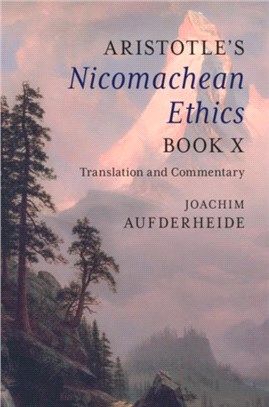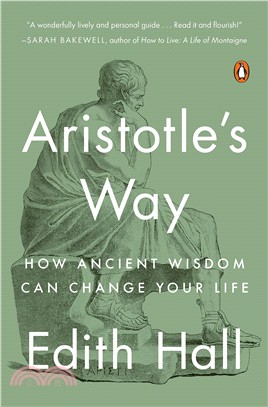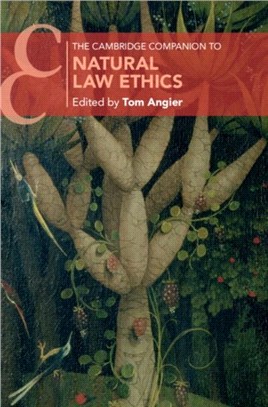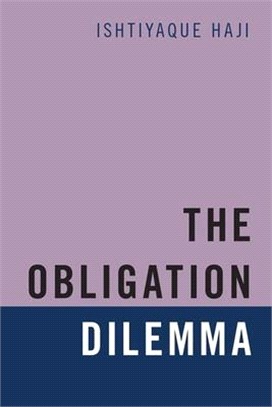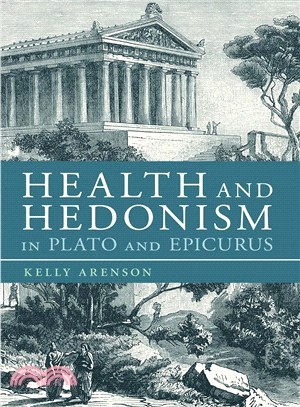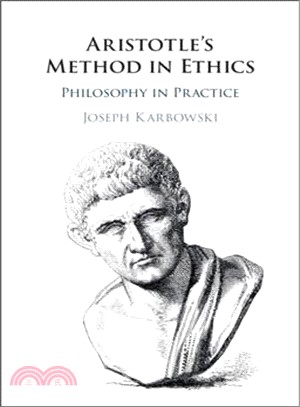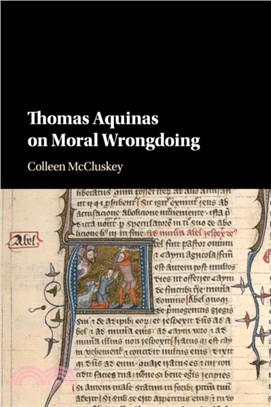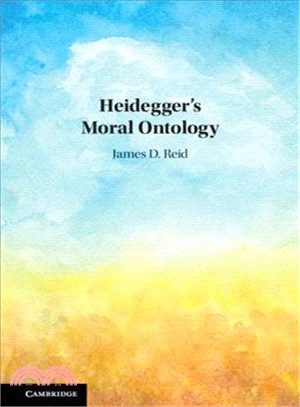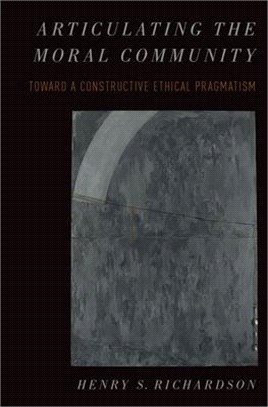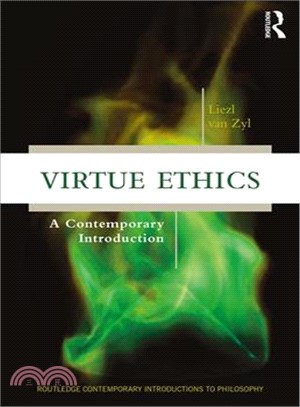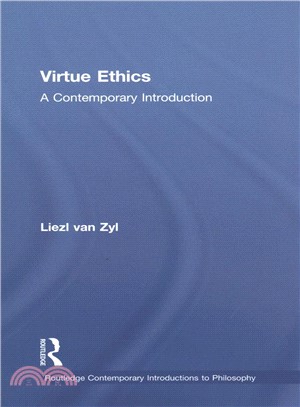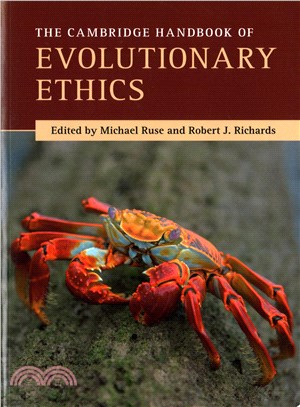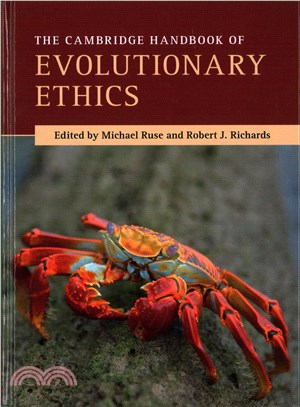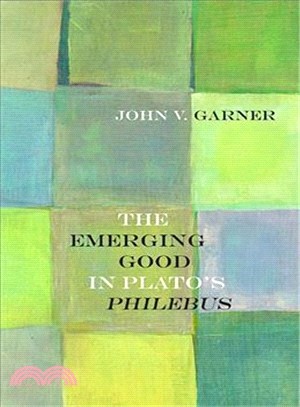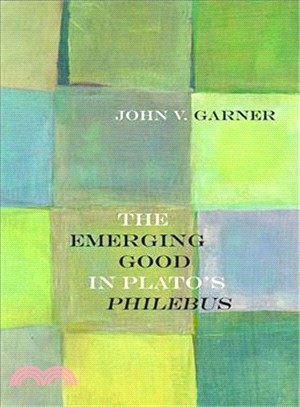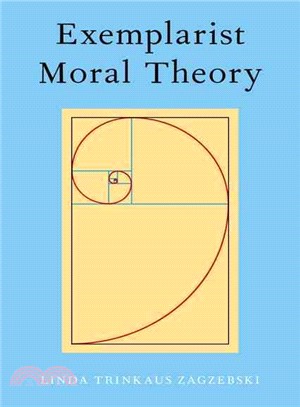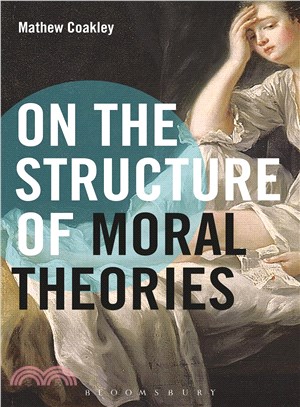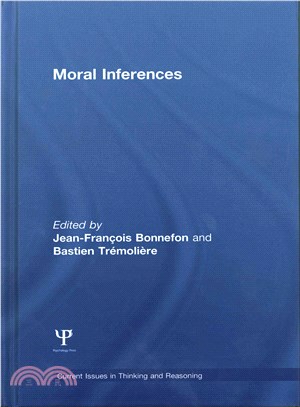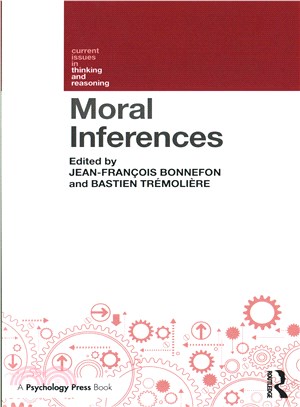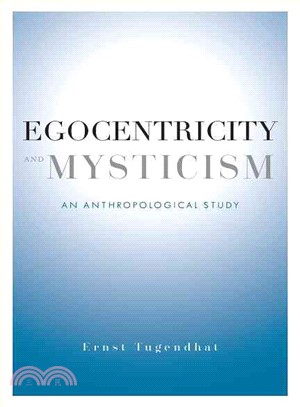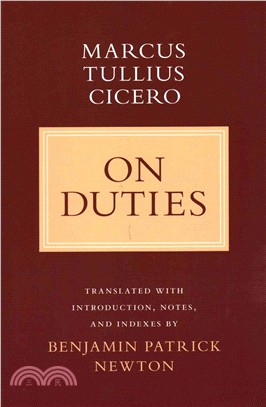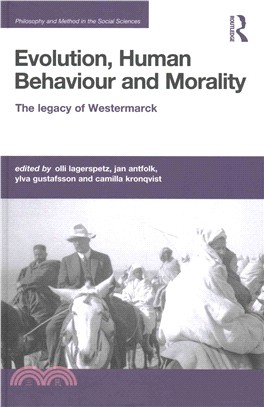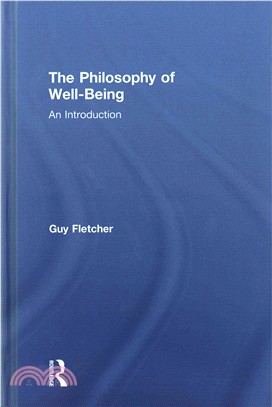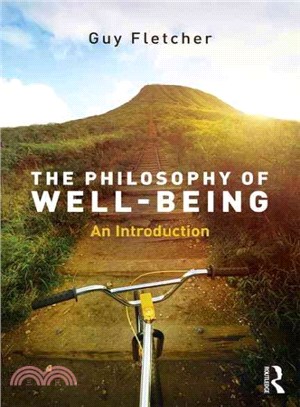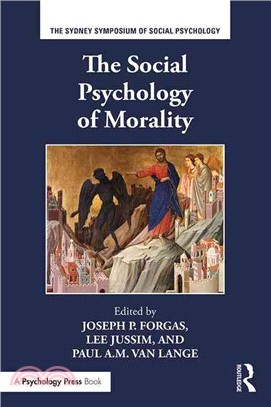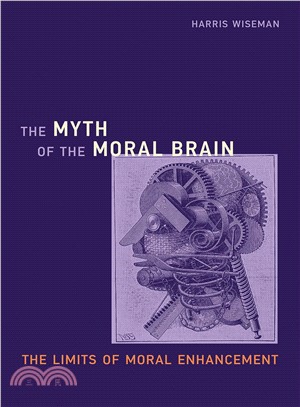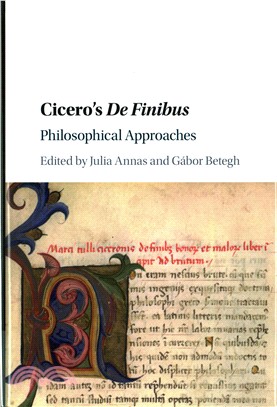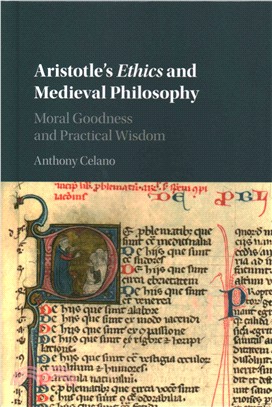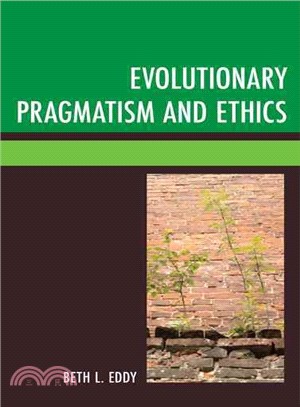共
376 筆
第1 / 10 頁
Accompanied by a new translation of Aristotle's Nicomachean Ethics X, this volume presents a hybrid between a traditional commentary and a scholarly monograph. Aristotle's text is divided into one hundred lemmata which not only explore comprehensively the content and strength of each of these units of thought, but also emphasise their continuity, showing how the smaller units feed into the larger structure. The Commentary illuminates what Aristotle thinks in each lemma (and why), and also shows how he thinks. In order to bring Aristotle alive as a thinker, it often explores several possible ways of reading the text to enable the reader to make up their own mind about the best interpretation of a given passage. The relevant background in Plato's dialogues is discussed, and a substantial Introduction sets out the philosophical framework necessary for understanding Book X, the final and most arresting section of the Ethics.
若需訂購本書,請電洽客服 02-25006600[分機130、131]。
From renowned classicist Edith Hall, ARISTOTLE’S WAY is an examination of one of history’s greatest philosophers, showing us how to lead happy, fulfilled, and meaningful livesTwo thousand years ago, A
優惠價:
79
541
無庫存
Natural law ethics centres on the idea that ethical norms derive from human nature. The field has seen a remarkable revival since the millennium, with new work in Aristotelian metaphysics complementing innovative applied work in bioethics, economics and political theory. Starting with three chapters on the history of natural law ethics, this volume moves on to various twentieth-century theoretical innovations in the tradition, and then to natural law as embedded in the three Abrahamic faiths. It closes with sections on applied natural law ethics and the challenges and prospects for natural law ethics in the twenty-first century. Uniquely interdisciplinary and written without technical jargon, the book will be of great interest to students and researchers in philosophy, theology, political theory and economics. They will find this the go-to resource for cutting-edge thinking in natural law ethics.
若需訂購本書,請電洽客服 02-25006600[分機130、131]。
若需訂購本書,請電洽客服 02-25006600[分機130、131]。
若需訂購本書,請電洽客服 02-25006600[分機130、131]。
若需訂購本書,請電洽客服 02-25006600[分機130、131]。
若需訂購本書,請電洽客服 02-25006600[分機130、131]。
This book links Plato and Epicurus, two of the most prominent ethicists in the history of philosophy, exploring how Platonic material lays the conceptual groundwork for Epicurean hedonism. It argues t
優惠價:
9
8100
無庫存
This book examines Aristotle's method in ethics from the vantage point of his broader conception of philosophy. Joseph Karbowski challenges longstanding dialectical orthodoxy and argues instead that, in his ethical treatises, Aristotle is seeking the first principles of a demonstrative ethical science, a science of human goodness, using an ethically adapted version of the method described in the second book of his Posterior Analytics. Part I of this volume develops a novel interpretation of Aristotle's conception of philosophy, which highlights its ambition to scientific knowledge (epistēmē) and its flexible approach to philosophical inquiry. Part II then demonstrates Aristotle's scientific and flexible approach to philosophy at work in his ethical treatises. The book shows how the aspiration to scientific knowledge is compatible with Aristotle's remarks about ethical precision, the practical aim of ethics, and the particular orientedness of phronēsis (practical wisdom).
若需訂購本書,請電洽客服 02-25006600[分機130、131]。
Medieval thinkers were both puzzled and fascinated by the capacity of human beings to do what is morally wrong. In this book, Colleen McCluskey offers the first comprehensive examination of Thomas Aquinas' explanation for moral wrongdoing. Her discussion takes in Aquinas' theory of human nature and action, and his explanation of wrong action in terms of defects in human capacities including the intellect, the will, and the passions of the sensory appetite. She also looks at the notion of privation, which underlies Aquinas' account of wrongdoing, as well as his theory of the vices, which intersects with his basic account. The result is a thorough exploration of Aquinas' psychology which is both accessible and illuminating, and will be of interest to a wide range of readers in Aquinas studies, medieval philosophy, the history of theology, and the history of ideas.
優惠價:
9
1169
無庫存
Heidegger's Moral Ontology offers the first comprehensive account of the ethical issues that underwrite Heidegger's efforts to develop a novel account of human existence. Drawing from a wide array of source materials from the period leading up to the publication of Being and Time (1919–1927), and in conversation with ancient, modern, and contemporary contributions to moral philosophy, James D. Reid brings Heidegger's early philosophy into fruitful dialogue with the history of ethics, and sheds fresh light on such familiar topics as Heidegger's critique of Husserl, his engagement with Aristotle, his account of mortality, the role played by Kant in the genesis of Being and Time, and Heidegger's early reflections on philosophical language and concepts. This lively book will appeal to all who are interested in Heidegger's early phenomenology and in his thought more generally, as well as to those interested in the nature, scope, and foundations of ethical life.
若需訂購本書,請電洽客服 02-25006600[分機130、131]。
Aristotle on Prescription explores Aristotle’s deep reflections on rule-making as a process that is both distinct from that of particular deliberation and decision-making and fundamental to it, operat
若需訂購本書,請電洽客服 02-25006600[分機130、131]。
Is morality fixed objectively, independently of all human judgment, or do we "invent" right and wrong? Articulating the Moral Community argues that neither of these simple answers is correct. Its ce
優惠價:
9
2565
無庫存
This volume provides a clear and accessible overview of central concepts, positions, and arguments in virtue ethics today. While it focuses primarily on Aristotelian virtue ethics, it also includes di
優惠價:
9
1983
無庫存
This volume provides a clear and accessible overview of central concepts, positions, and arguments in virtue ethics today. While it focuses primarily on Aristotelian virtue ethics, it also includes di
若需訂購本書,請電洽客服 02-25006600[分機130、131]。
Evolutionary ethics - the application of evolutionary ideas to moral thinking and justification - began in the nineteenth century with the work of Charles Darwin and Herbert Spencer, but was subsequently criticized as an example of the naturalistic fallacy. In recent decades, however, evolutionary ethics has found new support among both the Darwinian and the Spencerian traditions. This accessible volume looks at the history of thought about evolutionary ethics as well as current debates in the subject, examining first the claims of supporters and then the responses of their critics. Topics covered include social Darwinism, moral realism, and debunking arguments. Clearly written and structured, the book guides readers through the arguments on both sides, and emphasises the continuing relevance of evolutionary theory to our understanding of ethics today.
優惠價:
9
1349
無庫存
Evolutionary ethics - the application of evolutionary ideas to moral thinking and justification - began in the nineteenth century with the work of Charles Darwin and Herbert Spencer, but was subsequently criticized as an example of the naturalistic fallacy. In recent decades, however, evolutionary ethics has found new support among both the Darwinian and the Spencerian traditions. This accessible volume looks at the history of thought about evolutionary ethics as well as current debates in the subject, examining first the claims of supporters and then the responses of their critics. Topics covered include social Darwinism, moral realism, and debunking arguments. Clearly written and structured, the book guides readers through the arguments on both sides, and emphasises the continuing relevance of evolutionary theory to our understanding of ethics today.
若需訂購本書,請電洽客服 02-25006600[分機130、131]。
Plato’s Philebus presents a fascinating dialogue between the life of the mind and the life of pleasure. While Socrates decisively prioritizes the life of reason, he also shows that certain pleasures c
優惠價:
1
2097
無庫存
Plato’s Philebus presents a fascinating dialogue between the life of the mind and the life of pleasure. While Socrates decisively prioritizes the life of reason, he also shows that certain pleasures c
若需訂購本書,請電洽客服 02-25006600[分機130、131]。
優惠價:
79
652
無庫存
Although St Thomas Aquinas famously claimed that his Summa Theologiae was written for 'beginners', contemporary readers find it unusually difficult. Now, amid a surge of interest in virtue ethics, J. Budziszewski clarifies and analyzes the text's challenging arguments about the moral, intellectual, and spiritual virtues, with a spotlight on the virtue of justice. In what might be the first contemporary commentary on Aquinas' virtue ethics, he juxtaposes the original text with paraphrase and detailed discussion, guiding us through its complex arguments and classical rhetorical figures. Keeping an eye on contemporary philosophical issues, he contextualizes one of the greatest virtue theorists in history and brings Aquinas into the interdisciplinary debates of today. His brisk and clear style illuminates the most crucial of Aquinas' writings on moral character and guides us through the labyrinth of this difficult but pivotal work.
若需訂購本書,請電洽客服 02-25006600[分機130、131]。
In this book Linda Zagzebski presents an original moral theory based on direct reference to exemplars of goodness, modeled on the Putnam-Kripke theory which revolutionized semantics in the seventies.
若需訂購本書,請電洽客服 02-25006600[分機130、131]。
This is a book about a particular moral theory – motivation ethics – and why we should accept it. But it is also a book about moral theorizing, about how we might compare different structures of moral
優惠價:
9
6480
無庫存
Moral Inferences draws on the expertise of world-leading researchers to provide a ground-breaking exploration of reasoning and morality. Historically, these two areas of research have largely been con
若需訂購本書,請電洽客服 02-25006600[分機130、131]。
Moral Inferences draws on the expertise of world-leading researchers to provide a ground-breaking exploration of reasoning and morality. Historically, these two areas of research have largely been con
優惠價:
9
2833
無庫存
出版日:2016/10/04
作者:Ernst Tugendhat;
Mario Wenning (TRN);
Alexei Procyshyn (TRN)
出版社:Columbia Univ Pr
裝訂:精裝
Ernst Tugendhat sees mysticism as a response to a deep need for peace of mind. We experience this need in connection to our discursive practices that relate us to and differentiate us from one another
優惠價:
9
1881
無庫存
Benjamin Patrick Newton's translation of Cicero’s On Duties is the most complete edition of a text that has been considered a source of moral authority throughout classical, medieval, and modern times
若需訂購本書,請電洽客服 02-25006600[分機130、131]。
Benjamin Patrick Newton's translation of Cicero’s On Duties is the most complete edition of a text that has been considered a source of moral authority throughout classical, medieval, and modern times
優惠價:
1
1737
無庫存
出版日:2016/08/09
作者:Olli Lagerspetz (EDT);
Jan Antfolk (EDT);
Ylva Gustafsson (EDT);
Camilla Kronqvist (EDT)
出版社:Routledge UK
裝訂:精裝
This book highlights the recent re-emergence of Edward Westermarck's work in modern approaches to morality and altruism, examining his importance as one of the founding fathers of anthropology and as
若需訂購本書,請電洽客服 02-25006600[分機130、131]。
Well-being occupies a central role in ethics and political philosophy, including in major theories such as utilitarianism. It also extends far beyond philosophy: recent studies into the science and ps
若需訂購本書,請電洽客服 02-25006600[分機130、131]。
Well-being occupies a central role in ethics and political philosophy, including in major theories such as utilitarianism. It also extends far beyond philosophy: recent studies into the science and ps
優惠價:
9
2105
無庫存
In order to describe the logic of morality, "contractualist" philosophers have studied how individuals behave when they choose to follow their moral intuitions. These individuals, co
若需訂購本書,請電洽客服 02-25006600[分機130、131]。
Moral philosophy today is marked by profound, systematic disagreement. In Rightness as Fairness, Marcus Arvan argues that the field of moral philosophy must adapt scientific principles in order to mov
若需訂購本書,請電洽客服 02-25006600[分機130、131]。
Ever since Plato’s ‘Republic’ was written over two thousand years ago, one of the main concerns of social philosophy and later empirical social science was to understand the moral nature of human bein
優惠價:
9
3401
無庫存
Throughout history, humanity has been seen as being in need of improvement, most pressingly in need of moral improvement. Today, in what has been called the beginnings of "the golden age of neuro
Cicero is increasingly recognised as a highly intelligent contributor to the ongoing ethical debates between Epicureans, Stoics and other schools. In this work on the fundamentals of ethics his learning as a scholar, his skill as a lawyer and his own passion for the truth result in a work which dazzles us in its presentation of the debates and at the same time exhibits the detachment of the ancient sceptic. Many kinds of reader will find themselves engaged with Cicero as well as with the ethical theories he presents. This collection takes the reader further into the debates, opening up new avenues for exploring this fascinating work.
若需訂購本書,請電洽客服 02-25006600[分機130、131]。
Aristotle's Nicomachean Ethics had a profound influence on generations of later philosophers, not only in the ancient era but also in the medieval period and beyond. In this book, Anthony Celano explores how medieval authors recast Aristotle's Ethics according to their own moral ideals. He argues that the moral standard for the Ethics is a human one, which is based upon the ethical tradition and the best practices of a given society. In the Middle Ages, this human standard was replaced by one that is universally applicable, since its foundation is eternal immutable divine law. Celano resolves the conflicting accounts of happiness in Aristotle's Nicomachean Ethics, demonstrates the importance of the virtue of phronesis (practical wisdom), and shows how the medieval view of moral reasoning alters Aristotle's concept of moral wisdom.
若需訂購本書,請電洽客服 02-25006600[分機130、131]。
A rigorous treatment of a thought experiment that has become notorious within and outside of philosophy - The Trolley Problem - by one of the most influential moral philosophers alive todaySuppose you
優惠價:
9
1229
無庫存
This book details a pragmatic approach to the ethical and religious implications of a Darwinian perspective, drawing on the work of thinkers both secular and religious. The approach taken by James, Sa
若需訂購本書,請電洽客服 02-25006600[分機130、131]。
An up-and-coming visionary in the world of philanthropy and cofounder of the effective altruism movement explains why most of our ideas about how to make a difference are wrong and presents a counteri
絕版無法訂購



